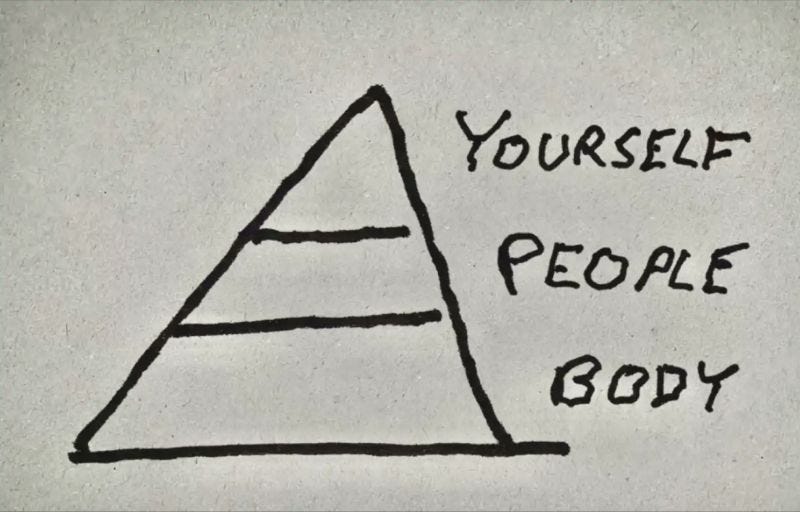What to do when you’re lost?
You may have recently noticed the documentary "Stutz" by Jonah Hill in your Netflix feed. In it, Hill and his therapist, Phil Stutz, discuss some of the tools Stutz developed to help his clients navigate life.
What began as a project by Hill to introduce the value of therapy to a larger audience evolved into a tender story about the relationship between these two men. It's a rare portrait of masculine intimacy and connection.
Stutz opens the film by describing one of his "Tools" called activating your "Life Force." When a patient comes to him feeling lost, stuck, or unsure of their path forward, he tells them to work on their Life Force FIRST. Getting out of your head and into forward motion is a consistent theme.
According to Stutz, your life force is the only thing capable of guiding you when you're lost, and is such a deceivingly simple concept that most people underestimate the impact.
To illustrate the concept, Stutz draws it out as a pyramid with three levels:
➡️ The bottom-level is your relationship with your physical body
➡️ The second level represents your relationships with other people
➡️ The third and top level is your relationship with yourself
What do these levels mean?
Bottom:
You have to get your body working better - not perfect, just better. Simple as that. Exercise, sleep, and eat good food.
This is where you must start, and Stutz claims this level accounts for 80% of the importance on the pyramid.
Level 2:
Your relationships with other people.
Stutz describes relationships with other people as something like handholds when climbing that can pull you back into life — and the key is YOU have to take the initiative. You can't wait for other people to invite you into relationship.
Start by asking ANYONE to go for a coffee - even if you don't find them particularly interesting. It will still have a positive effect. As humans, we need connection.
Level 3 — The highest tier in the pyramid:
Your relationship with yourself and your unconscious. This is the domain of shadow, dreams, and narrative identity (the story you tell yourself about yourself).
One suggestion Stutz has is to start journaling. You don't need to be a good writer - or share what you write with anyone. The point is to get your thinking out of your head and onto the page where it can become the object of your reflection.
While seemingly simple, there is a lifetime of work here.
For me, everything is harder when I'm not in a good relationship with my body. When this happens, I pull back from relationship and the world until I'm left stuck in my head - not a healthy place for me to stay for too long.
For more information on Stutz and his tools, I suggest his book “The Tools” written with co-author Barry Michels.



